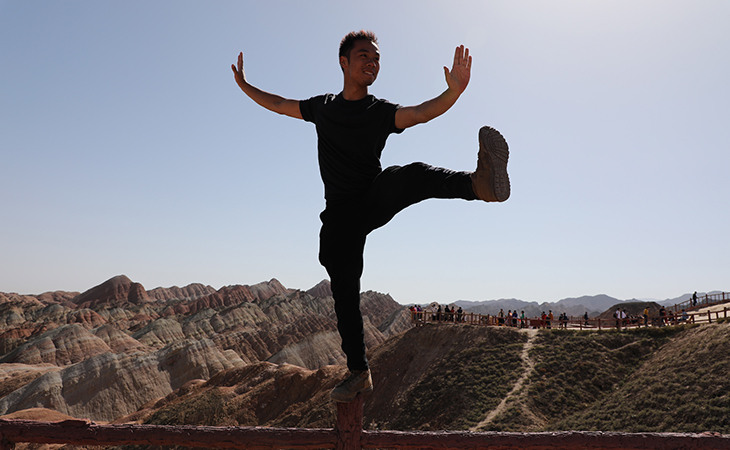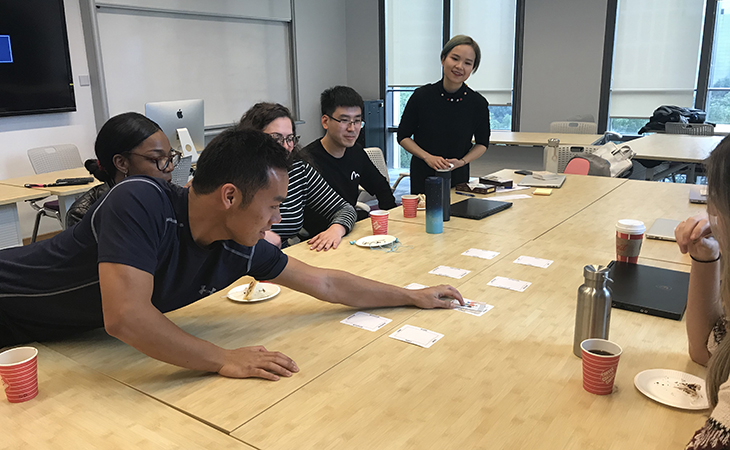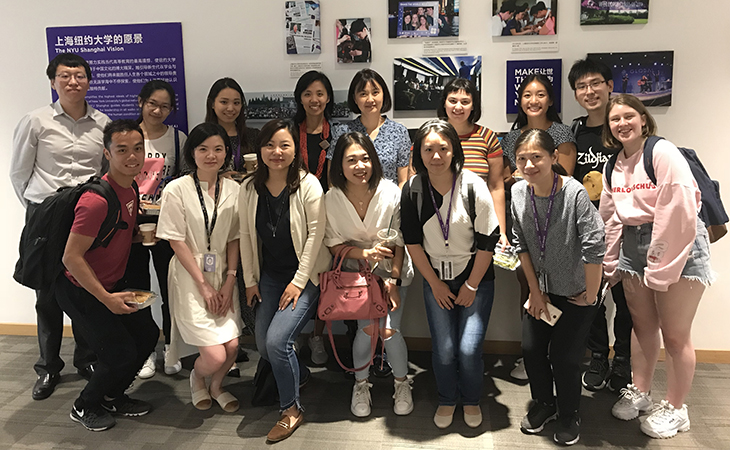NYU Shanghai and NYU Silver’s joint MSW program enjoys a thriving student body with diverse backgrounds. OGAE recently interviewed MSW ‘20 student Justin Pataray to get his perspectives studying MSW at NYU Shanghai - the multi-cultural experience and how it relates to his career.
Justin graduated from the University of California Irvine majoring in Psychology, with more than 7 years experiences in children development. He has worked at the children’s hospital and infant toddler center as paraeducator and behavior interventionist. As a Filipino-Chinese, Justin felt an attachment to Chinese culture due to his mother’s ancestry. When he applied for NYU’s MSW Program and found the option to study in Shanghai, he immediately decided to seize the opportunity as he has always been drawn to big city life and hopes to connect on a deeper level with China. Living in Shanghai for three months now, Justin shared with us his experiences and thoughts.

Q: How is your experience studying MSW at NYU Shanghai?
A: This program is unique in that we could choose to study in Shanghai for one year. First of all, I really like the urban lifestyle and everything is very convenient. Relating to my social work experience, I can appreciate what I have since in an urban-rural social structure, big cities enjoy more resources. Actually, I don’t feel much culture shock. I used to live in an ethnically Chinese part of Los Angeles and feel familiar with my living environment now.
We don’t have a large graduate population in Shanghai but we have a strong identity. And I would like to improve my Chinese level in this language environment. I am taking an Intermediate Chinese course at school and also trying to practice Chinese during my daily life. My classmates have organized trips across China and I have already traveled to Jiangsu and Gansu to visit the historical sites there to appreciate the Chinese culture.
I also felt that the technology has made things so easy at NYU Shanghai. Everything revolves around WeChat, from communication to digital payment. There is a higher level of adoption of mobile technologies.

Q: Can you talk about your Shanghai internship experience? Do you observe any differences compared to your US working experience?
A: My field placement is with Stepping Stone, a nonprofit organization with a mission to improve the education and general welfare of disadvantaged children in China. Since our program has a generalist approach, my work responsibilities are mainly on an organizational level, for example - volunteer management and event planning. I also do some direct client work such as teaching English to fifth graders once a week.
Speaking of the difference, the work culture is more casual here and the sense of boundary is not as strong, probably because of the larger cultural context and the societal expectations - China is a more cohesive society. In the US, we don’t normally follow co-workers on social media, but here, with WeChat, the communication is effective and I like it. There is not much difference with the teaching experiences except for the scale of the classroom - 15 kids vs 50 kids. My students are very curious about me as they try to pin down my identity, asking questions like where are you from, are you Chinese or Southeast Asian?

Q: How would the NYU Shanghai experience contribute to your future career?
A: I like to spend time with kids and plan to work in the education industry. I hope I could apply my knowledge and skills in psychology and social work to my job, such as to provide services to children with special needs. On my last job, we had some kids with severe behavioral and developmental issues who needed to be referred to agencies for assessment. However, their parents were very put off by the idea of being assessed and they felt the label of “special education” is a stigma. I had some difficulty communicating with two very traditional Chinese families back then. If I could talk to them in their native language with a more sensitive cultural perspective, perhaps I could better educate them about the need for assessment. With the NYU Shanghai experience, I can definitely better help more such families and their kids.
Meanwhile, I am not tied up to any place in the future. I learned China’s social work field is developing rapidly and the Chinese government plans to train more professional social workers. It is very exciting to witness this and to be part of it, and I may return to Shanghai if opportunities arise.


